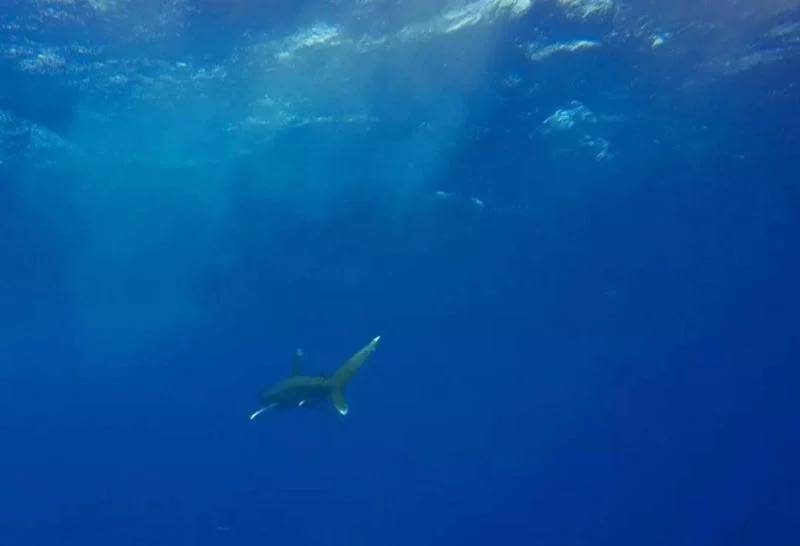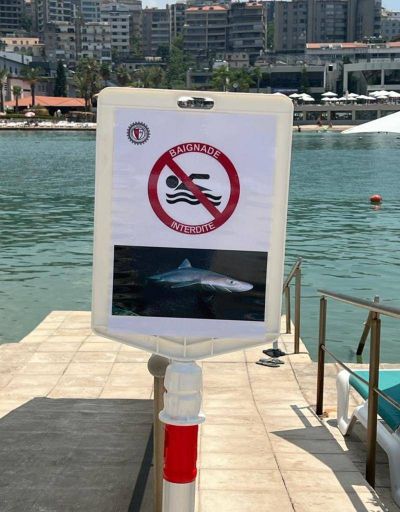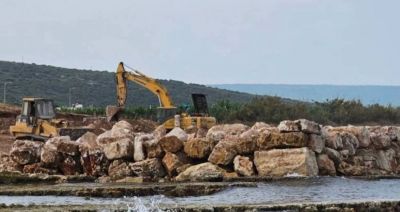
Illustration by AFP
BEIRUT — The Lebanese Agriculture Ministry Friday called on Lebanese to respect existing laws to preserve shark populations living in coastal waters, which are "are mostly non-aggressive," stressing the importance of protecting these species to preserve the marine ecosystem.
The ministry issued these recommendations after several days of press reports social media chatter about shark sitings off the Lebanese coast, provoking paranoia among beach-goers and resort patrons.
In its press release, the ministry considered most of the information recently shared about Lebanon's sharks to be "inaccurate."
In particular the ministry pointed out that, of the several shark species in coastal waters, "most are considered non-aggressive."
It emphasized "the importance of these fish species for the environment and the preservation of the marine ecosystem."
The statement called for compliance with current laws and regulations, "including resolution 1045/1, which sets out the general conditions for catching sharks, decree 6054, which specifies the types of nets authorized for coastal fishing, and resolution 2775, which prohibits the use of trawls."
"It is crucial to comply with these regulations to guarantee responsible fishing and to preserve the balance of marine ecosystems," the statement added. "The protection of sharks and the preservation of their habitat are essential to ensure the sustainability of marine resources and maintain the biodiversity of the Lebanese seabed."
Protecting biodiversity
Manal Nader, director of Balamand University's environmental institute, also underlined the importance of shark species for marine biodiversity.
"As predators at the top of the food chain, sharks help maintain fish populations in the seas and oceans, which is crucial for the balance of biodiversity," Nader told L'Orient-Le Jour, pointing out that sharks feed mainly on large, abundant fish, playing a key role in regulating these populations.
"Sharks have a very complex life cycle and are very vulnerable to disturbance. They take a long time to reach sexual maturity, and their reproduction depends on many factors," the marine scientist explained. "The quantity of eggs that hatch is not very high, and not all infant sharks survive. Consequently, the hunting and capture of sharks has fatal consequences for the ecosystem and compromises the survival of the species."
Social media
The expert denounced social media for circulating misinformation about shark fishing.
"In Lebanon, we're not used to eating sharks. They're not part of our diet. So fishermen don't intentionally catch them. However, sometimes young sharks get caught in their nets. It's essential that fishermen release them back into the water immediately, rather than taking photos to brag about their catch on social media," Nader said.
"This mentality of torturing animals is unfortunately widespread in Lebanon," he said, stressing that "in Lebanon, we have no history of shark attacks," which can be explained by the fact that, of the 40 or so species of sharks present in the Mediterranean, "all [or almost all] are harmless."
Nader regretted the "unfounded fear" of sharks and warned that if this fear leads humans to destroy an ecosystem, "it will end up affecting us as a species."
He also appealed to the relevant ministers to take stricter measures to dissuade fishermen from hunting sharks and other protected species.

